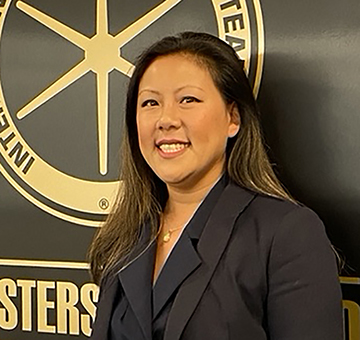China trade war impacts recycling and Teamster jobs
September 30, 2019More than 32,000 Teamsters across the nation work in the Solid Waste and Recycling Division. Every morning, Teamsters are out at the crack of dawn collecting America’s garbage and recyclables.
Unlike other Teamster industries, waste and recycling is concentrated into the hands of a few powerful corporations. Waste Management and Republic Services alone provide collection services to more than half the country. Despite this, the Teamsters are growing and organizing in this industry. Yet our jobs are under threat. We are taking action to protect our jobs in both this industry and the plastic-producing beverage industry—a major source of recyclable materials.
Recycling in this country began in the 1970s and 80s with the rise of curbside recycling and bottle deposit programs. Today about one-third of the waste Americans produce is diverted from landfills toward recycling. San Francisco leads the way for the entire country, diverting more products than any other city. It also leads the way because the workers have the best wages and benefits in this industry, thanks to the ongoing leadership of Teamsters Local 350 which represents all of the workers at Recology. Recology has an exclusive agreement to collect and process all of San Francisco’s waste and recyclables.
Recycling surprise
What most Americans don’t know is that most of the so-called “recyclables” we dispose of end up in landfills, warehouses, and incinerators. That’s because of China trade policy. We hear constant reports of this President fanning the flames of a trade war with China, but little about how this impacts our jobs.
For the last three decades, we sold most of the plastic, paper, glass, metal, and other recyclables that were collected to China. Locally, Teamsters took containers of recyclables to the Port of Oakland for export to China. That country converted those materials into products that were put back on container ships and transported back here and sold to us. That all stopped in 2018 when China adopted the “National Sword” policy, banning the import of certain types of plastic, papers, and solid waste, especially contaminated products.
Contamination is a big problem in the industry as most Americans still don’t know how to sort their waste. For example, many people throw pizza boxes in the recycle bin because they are cardboard. What they don’t realize is that pizza grease contaminates the cardboard. All of these materials are collected and sent to Material Recovery Facilities (MRFs) for sorting. This is some of the most dangerous work in the country, where Teamsters have fought hard to raise standards. The equipment needed to make much of these materials suitable for processing is expensive and frequently faulty. In most cases, it is cheaper for manufacturers to buy new materials instead of using recycled ones.
Impact on Teamsters
Still, it was China’s National Sword policy that really pulled the rug out from under this industry and our members. Instead of selling these materials to China for a profit, now our employers are paying money to incinerate, warehouse, or simply send the materials to a landfill. With profits down, there is less money to share at the table in bargaining.
Many smaller players in the industry—including Teamster employers—are on the verge of extinction. This is forcing our employers to go back to the cities with which they have franchise agreements to ask for rate increases. Of course, we’d rather see those rate increases go to our members.
The single largest culprit in all of this mess (no pun intended) are single-use plastic containers. Every year, the average American goes through 250 pounds of plastic materials. This puts our employers in the beverage industry squarely in the eyes of legislators, regulators, and organizations aiming to fix this problem. Why is that? Because about 6 billion pounds of plastic bottles get thrown away every year. Yet only 7% of the plastic our own employer Coca-Cola uses in its bottles comes from recycled plastic. The writing is on the walls.
Need for solutions
This year, California is looking at legislation that would require all plastic and single-use materials sold in the state to be either fully recyclable, reusable, or compostable. We worked with the bill authors to extend the date that the legislation goes into effect to 2030, giving our beverage employers 10 years to transition.
A few pieces of legislation will not fix the industry’s problems. Together with our employers, Teamsters have met with key government officials on this issue over the last few months. These include Jared Blumenfeld, California Secretary for Environmental Protection; Scott Smithline, Director of the California Department of Resources Recycling and Recovery; and Treasurer Fiona Ma. Our ask was simple: to convene a high-level task force to look at the crisis in the recycling industry and come up with solutions. For example, instead of selling materials abroad, California can invest in infrastructure and good jobs by building our own processing plants.
Most importantly, we are demanding that Teamsters have a seat on the task force so we can make sure our jobs are protected. You can expect to hear more on this in the coming months.

